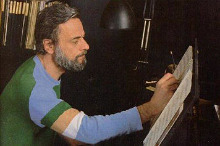Matt Rees's Blog, page 22
September 9, 2010
Overturning detective fiction: everyone's guilty in my novels
 The “Golden Age” of the detective story was the 1920s and 1930s. It was a turbulent period. In Britain, the General Strike. In the U.S., the Depression. Civil war in Spain, and in Germany the rise of the Nazis. Red scares everywhere, fascists too.
The “Golden Age” of the detective story was the 1920s and 1930s. It was a turbulent period. In Britain, the General Strike. In the U.S., the Depression. Civil war in Spain, and in Germany the rise of the Nazis. Red scares everywhere, fascists too.But the detective story was a solace to those who lived in such ugly times. In the model employed by Agatha Christie and Dorothy L. Sayers, the story ended with one criminal fingered by the detective. Everyone else turned out to be innocent. Order was restored. It was as if the writers were saying, Don’t worry about what you read in the newspapers; everything can be fixed and only a small minority are making the trouble.
In my Palestinian crime novels, the opposite is true. Everyone’s guilty. Tat’s the reality I found in Palestinian society, as disaster befell it in the last decade – an intifada, a civil war, and now a horrible stand-off between rival factions. Not any one person’s fault.
I believe that’s a better reflection of the world in which we live. My novels are entertainments, but they aren’t layered with the conservative perspective of the “Golden Age.” I don’t want readers to think that there’s nothing wrong out there, so long as the detective nabs the sole bad guy in the library.
Crime novels today are grittier than the work of Christie. They tend to be closer to the atmosphere of Raymond Chandler, who wrote that the Golden Age stories “really get me down.” But the Chandler ethos of a lone knight facing an utterly corrupt world is largely ignored.
That’s why there are so many novels these days about pedophiles and psychopaths. Such characters are beyond the pale of behavior in which we could imagine ourselves participating. To commit a crime in such novels is to mark oneself out as a deviant. As soon as the deviant is nabbed, the society can go back into its usual calm manner.
I think this is why Scandinavian crime novels have been so popular. Readers like the fact that, while the detective wrestles with the psycho, the society depicted is clearly not so very flawed. As soon as the psycho is nabbed, Sweden will return to its pleasant, polite way of life—something that’s easier to envisage than it would be in a novel set in, say, Bangkok or Gaza. Even in his recent novel, “The Worried Man,” Henning Mankell describes his detective as being no more than “worried about the direction of Swedish society.”
Worried! Can you imagine Omar Yussef, my Palestinian sleuth, being no more than worried? He lives in a society that’s engulfed in disaster. He knows everything’s going to hell and he’s aware that nabbing a single bad guy won’t change that.
The golden age method ought to have been overtaken by reality in a post-Holocaust age. Hannah Arendt wrote of the banality of evil, meaning that people don’t choose good or bad, they just go along. We’d like to see bad guys as pure evil, deciding firmly to commit horrible acts, while the truth of the Holocaust and many other dreadful events is that people are much more likely to operate in a kind of malleable denial.
It’s a vital insight. Yet I find most crime novels are written as though Hitler never happened—as if one wicked man can be blamed for what millions of others simply went along with.
Read the rest of this post on my blog The Man of Twists and Turns.
Published on September 09, 2010 02:19
•
Tags:
agatha-christie, crime-fiction, detective-stories, dorothy-l-sayers, hannah-arendt, henning-mankell, hitler, holocaust, intifada, nordic-crime, omar-yussef, palestine, palestinian, raymond-chandler, the-samaritan-s-secret
September 3, 2010
The Inquisition, the Jews of Andalus, and Columbus: 'By Fire By Water' review
 Historical novels vie with crime and romance novels for the titles of most derided and most widely read literature. They've had a bad rap ever since the 19th century, when the swashbucklers of Alexandre Dumas looked pretty wooden next to Dickens, and cartoonish in comparison to the depth of Victor Hugo or George Eliot. There have always been marvelous exceptions, such as Mary Renault's amazing novels of ancient Greece, but for much of the last century, historical fiction was seen as pure escapism, barely distinguishable from bodice-ripping romance.
Historical novels vie with crime and romance novels for the titles of most derided and most widely read literature. They've had a bad rap ever since the 19th century, when the swashbucklers of Alexandre Dumas looked pretty wooden next to Dickens, and cartoonish in comparison to the depth of Victor Hugo or George Eliot. There have always been marvelous exceptions, such as Mary Renault's amazing novels of ancient Greece, but for much of the last century, historical fiction was seen as pure escapism, barely distinguishable from bodice-ripping romance.Since the publication of "The Name of the Rose," in 1980, the genre has gained gradual legitimacy. Much snobbishness still abounds, however, over the commercial success of historical fiction and the perceived tendency of genre writers to simplify bygone eras. Still, though Umberto Eco's book has sold 10 million copies, it undoubtedly takes some brains to appreciate it, and no one could accuse Eco of writing simplistic books. Literary highbrows came down to mix with the hoi polloi long enough to award last year's Man Booker Prize, the most notable British book award, to Hilary Mantel's "Wolf Hall," a wonderful evocation not just of Tudor England but of the contrast between a steely self-made man and a bunch of spoiled, weak upper-class brats. The legitimacy of the genre progresses this year with the deification in both the United Kingdom and the United States of David Mitchell, whose novel about Japan in 1799, "The Thousand Autumns of Jacob de Zoet," is a candidate for the Booker and who, even before this latest work, has routinely been referred to as a genius by reviewers.
Read the rest of this post on my blog The Man of Twists and Turns.
Published on September 03, 2010 04:45
•
Tags:
abdel-aziz-rantisi, alexandre-dumas, andalus, by-fire-by-water, charles-dickens, crime-fiction, david-mitchell, gaza, george-eliot, hamas, hilary-mantel, historical-fiction, inquisition, islam, jews, judaism, mary-renault, mitchell-james-kaplan, muslims, palestinians, reviews, romance-fiction, spain, the-name-of-the-rose, umberto-eco, victor-hugo, wolf-hall, zaragoza
September 2, 2010
Bielefeld does exist!
 On my book tours I often venture to places few others visit. There are book festivals in tiny provincial towns. Readings at bookshops in small rural villages. This week I spoke in a German town that many Germans are convinced doesn’t even exist.
On my book tours I often venture to places few others visit. There are book festivals in tiny provincial towns. Readings at bookshops in small rural villages. This week I spoke in a German town that many Germans are convinced doesn’t even exist.Bielefeld (population 330,000) is a town in North Rhine-Westphalia. Or is it?
Since the 1990s, there has been a widespread internet campaign to convince Germans that this town doesn’t exist. It began as a light-hearted battle over computer codings between some fellows in Bielefeld and others elsewhere (who took a different view of the coding and decided to fight back.) Even though most of them know it exists (or do they?), Germans often respond to mention of Bielefeld with the words, “Bielefeld doesn’t exist."
This is because the town is rarely visited, doesn’t have a regional accent of its own, isn’t mentioned in the news very often, and had for a long time a railway station that looked boarded up. There are also few monuments or great buildings there, because…well, you can thank the USAAF and the RAF for that. (Bielefeld isn’t far from the Ruhr and was heavily bombed in World War II.)
The city council once released a statement titled “Bielefeld does exist,” but they released it on April Fools Day. So it looked as though the city council even was saying Bielefeld didn’t exist.
But I went there. And it does exist. In fact, it’s quite nice.
Read the rest of this post on my blog The Man of Twists and Turns.
Published on September 02, 2010 01:24
•
Tags:
andreas-schnadwinkel, bad-oeynhausen, bielefeld, book-tours, cologne, germany, hitler, internet, jews, judaism, leni-riefenstahl, rhineland, synagogue, thomas-wolff
September 1, 2010
Going historical
 Writing of the disdain expressed for genre novels by critics, Raymond Chandler said that there were just as many bad “literary novels” of the type favored by critics as there were bad genre stories – except that the bad literary novels didn’t get published. In other words, there’s nothing inherent in so-called genre fiction that makes it lesser than “literary” fiction.
Writing of the disdain expressed for genre novels by critics, Raymond Chandler said that there were just as many bad “literary novels” of the type favored by critics as there were bad genre stories – except that the bad literary novels didn’t get published. In other words, there’s nothing inherent in so-called genre fiction that makes it lesser than “literary” fiction.Chandler knew what he was talking about. His great noir novels, such as “The Big Sleep” and “The Long Goodbye,” are must-reads for anyone who wants to know how to build a sentence and a voice, how to create an image that won’t fade a few pages on, how to make people want to read it all over again. His contemporaries in the “literary” field who were more favored by the highbrow critics of his time are these days consigned to the dustbin of college literature courses. (If you don’t believe me, tell me when was the last time you reached for a volume by Upton Sinclair or Pearl Buck?)
But historical fiction is back. Ever since “The Name of the Rose” (published in English in 1983), the genre has accrued greater legitimacy. Last year’s Booker Prize went to a historical novel (“Wolf Hall”) and this year’s looks likely to go to “The Thousand Autumns of Jacob de Zoet” (do an internet search for its author David Mitchell and “genius,” and you’ll see why.)
Even poor old Alexandre Dumas and the swashbuckler have been returned from their long-ago burial under a mound of critical invective. In the last decade or so, Dumas has found his way into the title of a novel by Arturo Perez-Reverte, one of the most notable historical novelists of our time. Perez-Reverte can buckle a swash in the form of his Dumas-derived Captain Alatriste series, but he also has enough modern perversity for one of his novels to have been adapted for the screen by Roman Polanski. (That novel, “The Club Dumas,” even included a reference to Eco, “the professor from Bologna,” in a nod to his role in legitimizing the genre.)
Read the rest of this post on my blog The Man of Twists and Turns.
Published on September 01, 2010 00:06
•
Tags:
alan-furst, alexandre-dumas, arturo-perez-reverte, barbara-nadel, barry-unsworth, caleb-carr, captain-alatriste, caravaggio, crime-fiction, david-mitchell, hilary-mantel, historical-fiction, j-sydney-jones, literary-fiction, mozart, mozart-s-last-aria, new-york, omar-yussef, palestinian, pearl-buck, raymond-chandler, sacred-hunger, the-big-sleep, the-club-dumas, the-long-goodbye, the-name-of-the-rose, umberto-eco, upton-sinclair, west-bank, wolf-hall
August 16, 2010
Israeli leaders pass buck
 The present Israeli government seems to make a specialty of dropping the ball. The only thing the top ministers won’t drop is the buck. They’re very adept at passing that.
The present Israeli government seems to make a specialty of dropping the ball. The only thing the top ministers won’t drop is the buck. They’re very adept at passing that.Testimony last week revealed the lack of responsibility at the top of the Israeli government. Before a committee investigating a fouled up military operation, Prime Minister Benjamin Netanyahu and Defense Minister Ehud Barak have both said they take responsibility for the attempted takeover of a Turkish boat May 31 which left nine of the protesters aboard dead. Of course, they immediately added that “taking responsibility” doesn’t mean they were actually “responsible” for what happened.
That was someone else.
Netanyahu said it was Barak’s fault. Barak said it was the army’s fault, and also Netanyahu’s fault. On Aug. 11, the army chief of staff, Gabi Ashkenazi, testified. He said he “takes responsibility” for the operation, and then argued that it wasn’t a failure. In fact he was “proud” of the soldiers who took control of the boat, which was steaming toward Gaza to break the Israeli blockade.
So that’s all cleared up then. Nobody was responsible for the failures of the raid. But the raid was also a good thing. Even if it did result in the broadest international vilification of Israel for some years.
Even the leader of the opposition, Tzipi Livni, says she wants to testify before the committee to “take responsibility” for the Gaza blockade, which was initiated while she was foreign minister in the previous government. The policy is good, she says, but Netanyahu isn’t running it correctly, which makes it look bad. So her taking of responsibility is also just a way of showing that someone else is responsible for the thing no one wants to take responsibility for.
When there’s so much talk of responsibility, it usually means somebody must have done something very irresponsible.
Read the rest of this post on my blog at The Man of Twists and Turns.
Published on August 16, 2010 01:29
•
Tags:
benjamin-netanyahu, ehud-barak, eiland-report, gabi-ashkenazi, gaza, israel, mavi-marmara, middle-east, palestinians, turkish-flotilla, tzipi-livni
August 13, 2010
In between the drafts
 Rock musicians like to note that, had they not discovered their talents for destroying ear-drums, they’d have been criminals. It adds some edge to their pampered personae. Here’s my claim to edge: had I not been a writer, I’d have been locked up long ago, but not in a jail. At best I’d have been sedated.
Rock musicians like to note that, had they not discovered their talents for destroying ear-drums, they’d have been criminals. It adds some edge to their pampered personae. Here’s my claim to edge: had I not been a writer, I’d have been locked up long ago, but not in a jail. At best I’d have been sedated.I know this for sure, because when I’m between drafts of a novel I feel the old madnesses creeping up on me. The dark resentments whose origins I can’t quite nail down. The tension around the center of my chest and the heavy breathing and the tight jaw and the voice in my head telling me this isn’t fair, whatever it is. The flickering fantasies penetrating my mind when it lacks the focus that otherwise keeps it calm.
My wife sees all this before I do, at least consciously. “Maybe you ought to work on something else while you’re waiting to start a new draft,” she says, gentle and delicate, as if she were waiting for me to respond with an angry “I’m all right, dammit."
I have to take a break, you see, because writing a novel requires for me at least 10 drafts. Read a book 10 times straight and see if you don’t get bored with it. Or really pissed off.
So when I get through a draft, I take a week or so before I get back into it. As the end of the draft approaches, I start to fret about that week. I can’t take an actual vacation, because I always tell myself that I don’t know precisely when I’ll reach the end of the draft and therefore I can’t book a trip in advance. I try to line up some reading related to the subject of the book, but sometimes the books turn out to be duds or I’m done with them in a day and a half.
This time, as I take a break between drafts of my novel about the great Italian painter of the early seventeenth century, Caravaggio, I find myself sweating it out in the desert heat of Jerusalem. Enervating, indeed. I’m already a little fevered in any case, because I’ve been deep in the psyche of Caravaggio, who was both a brilliant artist and a duelist with an explosive temper.
Read the rest of this post on my blog The Man of Twists and Turns.
Published on August 13, 2010 01:01
•
Tags:
caravaggio, crime-fiction, gaza, jerusalem, meditation, plays, playwright, writing, writing-life
August 4, 2010
Sondheim in the West Bank
 I’m in between drafts of a novel, so I thought I’d look for something to clear my head. Inspired by a BBC broadcast last week in honor of the 80th birthday of Broadway lyricist and composer Stephen Sondheim, I’ve been working on a musical version of my Palestinian crime novels. (Only in the shower, so far…)
I’m in between drafts of a novel, so I thought I’d look for something to clear my head. Inspired by a BBC broadcast last week in honor of the 80th birthday of Broadway lyricist and composer Stephen Sondheim, I’ve been working on a musical version of my Palestinian crime novels. (Only in the shower, so far…)I’m thinking of updating the Romeo and Juliet story and setting it in Bethlehem. In tribute to the Sondheim-Bernstein classic “West Side Story,” it’ll be called “West Bank Story,” of course, and will be the tale of the rivalry between two gangs, one Fatah and the other Hamas. I’ve already scored a couple of the numbers (“Aisha, I just met the mother of a girl named Aisha” and “I feel pretty, Oh so pretty, I feel pretty and witty and…I’d best not talk about it because the Hamas guys won’t like it.”)
I'm proud to say I have accrued quite a track record at developing disastrous failed concepts for musicals. I’ve been driving my wife crazy with these ideas for years. This is inspired by the large number of distinguished writers who’ve penned opera librettos and discovered that writer-turned-lyricists have a special graveyard all their own in Hell. Vikram Seth, Russell Hoban and, most recently, Ian McEwan have turned their hand to it. None of them seem to be rivals to Lorenzo da Ponte, Mozart’s greatest librettist, no matter how hard they’ve tried.
Which is why I’ve always thought it’s a better idea to write a failed musical. After all, did you ever see a musical that didn’t seem like it would’ve been better left in the librettist’s bottom draw – or in this case, his blog? Believe me, I know: I saw “Falsettos” on Broadway.
I’ve particularly enjoyed working on failed musicals which fall into the category first popularized by the Buddy Holly biosical (biography-musical, new word all my own) “Buddy” and recently by Green Day’s “American Idiot,” in which music people already love is jammed into a ridiculous storyline. (Ridiculous storylines are de rigeur in the Middle East, so maybe the Palestinian musical isn’t so silly…)
That brought me the following list of future Tony Award Winners:
BLOOD ON THE CHANTILLY LACE: A detective discovers that Buddy Holly and Richie Valens died when their plane came down only because gangsters wanted to rub out the third, largely unremembered passenger, The Big Bopper.
FUGUE! The life of J.S. Bach, fun-loving father of 20 and writer of the scariest piece of music ever (Toccata and Fugure in D minor for organ).
I’M A BELIEVER: The songs of The Monkees performed in Gregorian plainchant by monks.
Read the rest of this post on my blog The Man of Twists and Turns.
Published on August 04, 2010 23:04
•
Tags:
bbc, broadway, buddy-holly, elvis-presley, falsettos, fatah, fbi, frost-nixon, green-day, hamas, hank-williams, ian-mcewan, j-s-bach, leonard-bernstein, lorenzo-da-ponte, middle-east, mozart, palestine, palestinian, romeo-and-juliet, russell-hoban, stephen-sondheim, the-big-bopper, the-monkees, tony-awards, vikram-seth, west-side-story, writing
Israel Museum gets funky
 I was the first journalist to interview James Snyder when he arrived in 1997 from a sinecure at New York's Museum of Modern Art to head the Israel Museum, the country's premier cultural institution.
I was the first journalist to interview James Snyder when he arrived in 1997 from a sinecure at New York's Museum of Modern Art to head the Israel Museum, the country's premier cultural institution.Snyder had neat white hair, a trim build encased in a seersucker suit, and a black tie. This, in a land where dressing up means putting on a T-shirt that has sleeves. As I listened to his East Coast drawl, I took one look at him and figured he wouldn’t last.
Devotees of the Israel Museum can be thankful I was wrong. Snyder just completed a $100-million renovation of the museum, transforming a much-loved but confusing jumble into a sleek, user-friendly building.
After three years in which visitors could, more or less, only see the Dead Sea Scrolls and a large model of Jerusalem in the time of Herod’s Temple (still at the full entrance price), the museum reopened its full collection last week. The flashy redesign has attracted masses of Israelis and foreign tourists without making the place seem overcrowded.
The new museum sticks with the general features of the older building, which was designed in the late 1950s and inaugurated in 1965. A series of modernist cubes, the old building was arranged along the ridge above the 11th-century Monastery of the Cross, and beside the Knesset, Israel’s parliament. The original designer, Alfred Mansfeld, intended the museum to blend with its landscape, like an Arab village.
Unfortunately, Mansfeld also had the idea of making visitors walk the entire length of the museum — uphill, a distance equal to four stories, and outside in a city that sits in a desert and is quite hot nine months of the year — before they could enter. The walk was, to say the least, unpopular. Particularly because when you got to the top, you had to go down some stairs to enter the galleries.
Read the rest of this post on my blog The Man of Twists and Turns.
Published on August 04, 2010 06:30
•
Tags:
alfred-mansfeld, dead-sea-scrolls, egyptian-mummies, global-post, herod-s-temple, israel, israel-museum, james-snyder, jerusalem, jews, journalism, monastery-of-the-cross, monet, museum-of-modern-art, new-york, palestinians, rembrandt, renoir, rodin, saint-peter, van-gogh
August 1, 2010
With democracy like this, who needs dictators?
 JERUSALEM — Israelis like to point out that theirs is the only democracy in a Middle East otherwise dominated by repressive regimes. Given the performance of legislators in the parliamentary session that just ended here, you might be forgiven for asking: with democracy like this, who needs dictators?
JERUSALEM — Israelis like to point out that theirs is the only democracy in a Middle East otherwise dominated by repressive regimes. Given the performance of legislators in the parliamentary session that just ended here, you might be forgiven for asking: with democracy like this, who needs dictators?The Knesset, Israel’s parliament, broke up last week for its summer vacation. The speaker of the Knesset, Reuven Rivlin, sent lawmakers on their way with an interview in an Israeli newspaper in which he described them as “pathetic.” Several human rights organizations slammed as dangerous to democracy more than a dozen bills that passed preliminary readings. The most abiding image of the session was surely the gang of right-wing legislators heckling and threatening a female Arab parliamentarian who had been aboard a Turkish ship intercepted by Israeli commandos en route for Gaza.
In a letter to Israeli Prime Minister Benjamin Netanyahu last week, Debbie Gild-Hayo, director of policy advocacy at the Association for Civil Rights in Israel, complained of “14 dangerous draft bills” introduced to the departing parliament.
“The Knesset is supposed to be a bastion of democracy,” Gild-Hayo wrote. “It seems an increasing number of Members of Knesset believe that their job is to silence those who do not share their views.”
The most headlines were devoted to a confrontation between conservative legislators and Haneen Zoabi, the female Arab lawmaker. Zoabi was aboard one of the Turkish boats intercepted May 31 by Israeli troops, which resulted in nine dead among the activists on board. They were protesting the Israeli blockade of Gaza by trying to run it.
The Knesset voted two weeks ago to suspend Zoabi some parliamentary privileges. She called this an act of “revenge” for her participation in the seaborne protest. A right-wing Israeli lawmaker brandished an enlarged facsimile of an Iranian passport with Zoabi’s photo in it. (Zoabi has suggested that Iran should have nuclear weapons to balance Israel’s arsenal.)
Read the rest of this post on my blog The Man of Twists and Turns.
Published on August 01, 2010 05:38
•
Tags:
arab, benjamin-netanyahu, gaza, haneen-zoabi, israel, israel-our-home, jerusalem, jew, knesset, middle-east, politics, reuven-rivlin, turkish-flotilla, west-bank
July 29, 2010
Memo to Oliver Stone
 In Israel, the Jews control the banks! They fill all the top positions in the media! They are behind all the major political powerbrokers! They even print the money!
In Israel, the Jews control the banks! They fill all the top positions in the media! They are behind all the major political powerbrokers! They even print the money!Someone should look into this, Oliver, because I don’t think it’s just coincidence, and I know you’ll agree. I think you’re the man to expose it.
You said in an interview published this weekend that Hitler was “a Frankenstein,” and then went on to add that the Dr. Frankenstein who created him was an amalgam of U.S., British and German industrialists. You added that the Nazis killed more Russians than Jews and opined that, in spite of this, we tend to think of the Holocaust as a Jewish thing. (You said something else about having “walked in Hitler’s shoes…” but let’s just put that aside for now.)
On the one hand, Oliver, you’re an oaf who has had to apologize for his “clumsy association” about the Holocaust. Well, the art world needs oafs from time to time. Because on the other hand, Oliver, we all ought to remember that reality is much more sophisticated than the explanations of history which are handed down to us, honed and narrowed until they read very simplistically, ignoring inconvenient facts and allowing people to shout down those who point out such facts.
Read the rest of this post on my blog The Man of Twists and Turns.
Published on July 29, 2010 01:26
•
Tags:
benny-morris, frankenstein, glamorgan, hitler, holocaust, israel, jews, nazis, oliver-stone, palestinians, russians, the-doors, wales, yasser-arafat, zeev-sternhell



